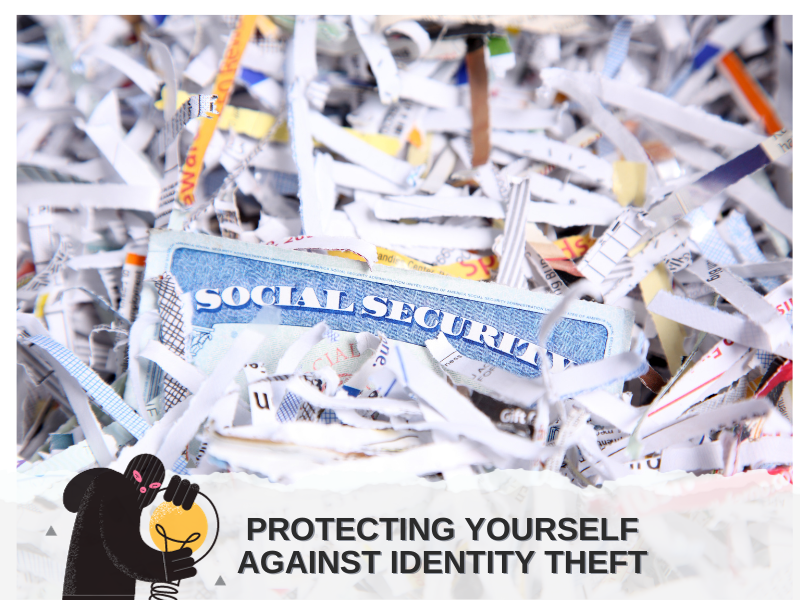Identity theft, a rapidly growing crime in America, poses a significant threat to millions of people. As this malicious act continues to escalate, it is crucial to safeguard our vital information and personal details from falling into the wrong hands. It is particularly important to be vigilant in protecting seniors, who are frequently targeted by identity thieves. Let us exercise utmost care and caution to avoid falling victim to this troublesome trap.
Identity theft refers to the malicious act of stealing and exploiting an individual’s personal information. This could involve the theft of sensitive data such as credit card numbers or social security numbers. Once obtained, these identity thieves misuse the stolen information, falsely assuming the victim’s identity. They may engage in activities such as making unauthorized purchases with the victim’s credit cards, taking out substantial loans, or even committing additional criminal acts in the victim’s name. As a result, the consequences of identity theft can be far-reaching, impacting both the victim’s financial well-being and personal reputation.
Identity thieves tend to target seniors for various reasons. Firstly, seniors are often homeowners with valuable assets and possessions. Additionally, their solid credit ratings and financial stability make them lucrative targets. Moreover, seniors are known for their trusting nature, which sadly makes them vulnerable. It is unfortunate that many seniors choose not to report stolen or lost credit cards and information due to their concern about not burdening their loved ones. This combination of factors makes seniors a prime target for identity thieves.
How do you safeguard yourself from falling victim to identity theft? Here are several effective measures you can take to protect your personal information:
- Do not keep your social security numbers and credit card PIN numbers in your wallet. Instead, keep them in a safe place where only you can find them.
- Keep vital information, bank statements, and medical statements, in a safe place, such as, at home or in a safe deposit box.
- Be sure to monitor your bank statements and credit card statements regularly. If anything suspicious appears on these statements, you should inform the bank or the credit company without fail. Do so as soon as you see it.
- Tear or shred papers before throwing away anything with personal data.
- Never divulge particular information to ANYONE.
- Come up with passwords only you can decipher. Don’t use your son’s or daughter’s names or your pet’s. Identity thieves know how to crack these codes.
- Never give out personal information through the phone or email.
- When using a computer, be sure to use firewall protection and a secure browser. Update your virus protection guard on a regular basis and make your email and other computer passwords difficult. Add a mix of numbers and letters to the passwords.
- It is very easy for identity thieves to get information out of seniors. However, if you are careful and watchful, you will protect yourself against identity theft.
This informative article is proudly presented by ActiveAdultLiving.com®, the leading retirement community website that offers an extensive selection of over 8,500 active adult communities across the United States and Canada. Discover the perfect community that suits your unique lifestyle and preferences for an exceptional retirement experience.




